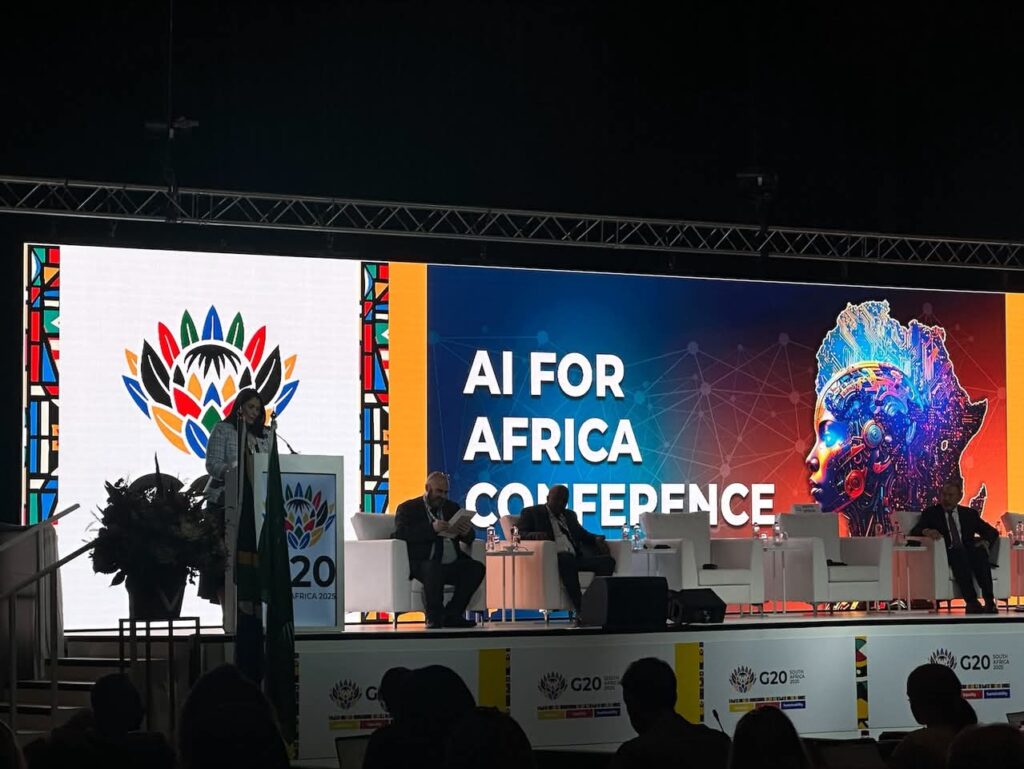The African Union AU has urged global leaders to embrace Africa’s vision for artificial intelligence (AI) as a driver of inclusive growth, innovation, and sovereignty, stressing that the continent must not remain a passive consumer of technologies developed elsewhere.
Speaking on behalf of the AU Commission Chairperson, Mahamoud Ali Youssouf, Amb Selma Malika Haddadi, Deputy Chairperson of the African Union Commission, told delegates at the G20 Dialogue on Artificial Intelligence for Africa (AI4Africa) in Cape Town that AI offers unprecedented opportunities for development if anchored in African values and realities.
“Africa’s place at the G20 table is not courtesy—it is recognition of Africa’s indispensable role in setting global priorities. We are here to co-author outcomes and exercise Africa’s voice with dignity, conviction, and purpose,” the envoy declared.
The dialogue, themed “Unlocking AI Potential for Africa’s Development and Prosperity,” brought together policymakers, experts, and knowledge partners including UNESCO. Delegates examined how Africa can leverage AI to advance its Agenda 2063 vision during the Decade of Acceleration.
The AU stressed that technology must not be viewed solely through the lens of disruption and inequality. Instead, AI should be treated as a tool for amplifying African creativity and contextual problem-solving.
“AI must not replace human ingenuity. It should serve as a catalyst—transforming individual capability into collective impact,” the AU noted.
The African Union adopted its Continental AI Strategy in 2024 to ensure that emerging technologies advance development while protecting rights and dignity. The framework emphasises inclusive governance models, fit for Africa’s diverse contexts.
Young Africans, the AU insisted, must play a central role in shaping these systems.
“Our youth are not just beneficiaries, they are architects and custodians of the frameworks that will define AI in Africa for decades to come,” the statement read.
The AU called for stronger investments in AI infrastructure, cross-border digital identity systems, and safeguarding African data as a strategic asset. It also urged partners to support research, innovation, and closing the funding gap.
“Sovereignty does not mean isolation. It means partnerships from a position of strength,” the AU stressed, pointing to the need for Africa-owned intellectual property that can compete globally.
The AU warned that efficiency without purpose risks deepening inequality, calling instead for human-centred AI grounded in Pan-Africanism and Ubuntu.
The Commission emphasized that Africa’s ambitions extend beyond consumption:
AI systems must support African languages,
Serve communities contextually,
And reflect the continent’s heritage as a contribution to global knowledge.
“Africa is no longer willing to remain a consumer of AI solutions designed elsewhere. We already possess the capacity to shape AI development and governance in ways that reflect our cultures, aspirations, and realities.”
The AU’s intervention concluded with a call for stronger international support for the AI4Africa initiative, positioning the continent not only as a participant but as a leader in shaping the future of artificial intelligence.
“Africa’s message is one of confident stewardship. Intelligence—whether natural or artificial—must always be rooted in human dignity,” the AU envoy affirmed.





